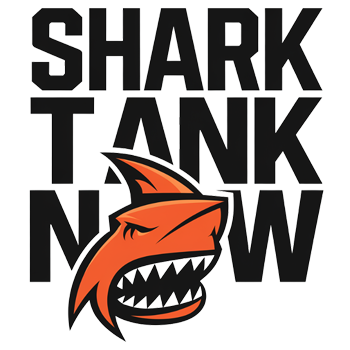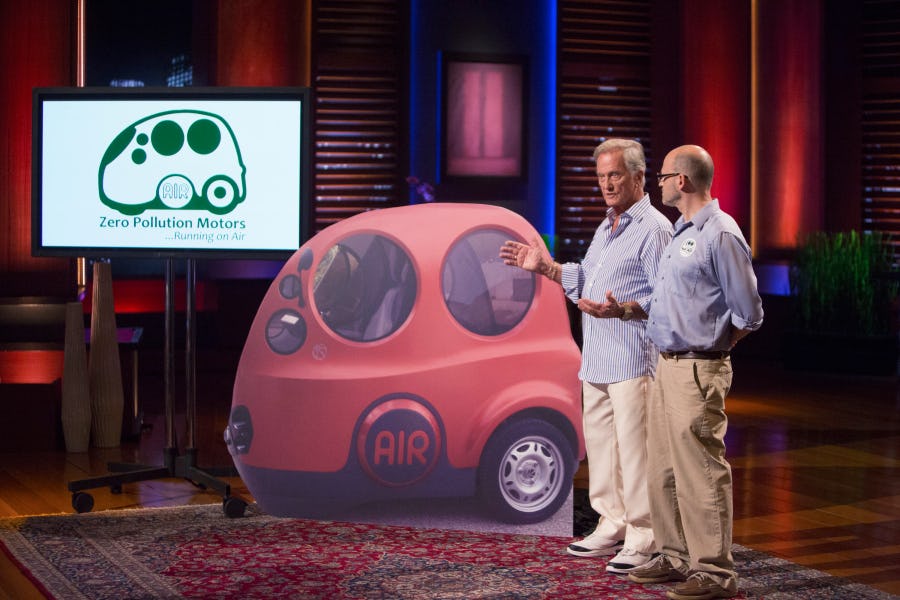When I first heard about the AIRPod—a car powered entirely by compressed air—I was intrigued. It sounded like something out of a sci-fi movie: a vehicle with zero emissions, noiseless operation, and an affordable price tag. But as I delved deeper into its story, especially its appearance on Shark Tank, I realized the tale of Zero Pollution Motors and their AIRPod wasn’t just about innovation. It was also about the challenges and complexities of bringing a revolutionary idea to life. So let’s dive into the fascinating journey of the AIRPod, from its grand pitch on Shark Tank to its current status.
Introducing the AIRPod
The AIRPod was the brainchild of Ethan Tucker, an entrepreneur, and his co-founder, legendary singer Pat Boone. Their company, Zero Pollution Motors, aimed to revolutionize urban transportation with a vehicle powered entirely by compressed air. The AIRPod wasn’t just eco-friendly—it was quirky and compact, resembling a futuristic pod more than a traditional car. It could travel approximately 100 miles on a single charge, reached a top speed of 50 miles per hour, and promised a retail price of just $10,000.
This was a car designed for short city commutes, targeting environmentally conscious consumers looking for an affordable alternative to gas-guzzling vehicles. But as exciting as the concept sounded, the journey to market was anything but smooth.
The Shark Tank Pitch
Tucker and Boone brought their innovative concept to the sixth season of Shark Tank, appearing in Episode 27. Their ask? A whopping $5 million for 50% equity in Zero Pollution Motors. It was one of the highest investment requests in the show’s history, but their pitch had a lot going for it.
What Stood Out
The duo showcased the AIRPod’s unique features, emphasizing its potential to disrupt the urban mobility market. They explained how compressed air technology worked and highlighted the vehicle’s environmental benefits. The pitch also included a prototype of the AIRPod, which captured the sharks’ attention due to its unconventional design. One memorable moment was when Daymond John humorously referred to it as a “wheel lunchbox.”
The Offer
Investor Robert Herjavec saw potential in the AIRPod’s technology and the vision behind it. He offered the requested $5 million for 50% equity but added a critical condition: the deal would only go through if Tucker and Boone could secure licensing rights for the entire U.S. market. At the time, Zero Pollution Motors was focused on launching the AIRPod in Hawaii, but Herjavec’s vision extended much further. The founders accepted his offer, marking it as a landmark deal on the show.
A Data-Rich Overview
Here’s a comprehensive table summarizing key details about the AIRPod and its journey on Shark Tank:
| Category | Details |
|---|---|
| Product Name | AIRPod |
| Founders | Ethan Tucker and Pat Boone |
| Season & Episode | Season 6, Episode 27 |
| Ask (Investment & Equity) | $5 million for 50% equity |
| Final Deal | $5 million for 50% equity, contingent on securing U.S. licensing rights |
| Shark(s) Involved | Robert Herjavec |
| Memorable Episode Moments | Daymond John’s comment: “wheel lunchbox” |
| Current Net Worth | Not publicly disclosed; company faced challenges in bringing the product to market |
| Current Business Status | As of 2024, the company has been inactive, with no recent updates or product releases |
| Revenue Since Shark Tank | No significant revenue reported; production and sales did not commence as planned |
| Social Media Presence | Last active on Facebook in 2018; no recent posts or engagements |
| Key Achievements | Secured a high-profile deal on Shark Tank; garnered significant media attention; highlighted the potential of alternative energy vehicles in mainstream discussions |
What Happened After Shark Tank?
This is where things get complicated. Despite the high-profile deal with Robert Herjavec, the partnership didn’t materialize. The primary hurdle? Licensing rights. Tucker and Boone struggled to secure the necessary agreements to produce and distribute the AIRPod across the U.S. market, a condition Herjavec had made clear was non-negotiable.
The Challenges
- Licensing and Regulations: The compressed air technology, while innovative, faced significant regulatory hurdles. The automotive industry is notoriously difficult to penetrate, with stringent safety and environmental standards that must be met before any vehicle can hit the market.
- Funding and Infrastructure: Manufacturing a vehicle requires substantial investment in production facilities and supply chains. Zero Pollution Motors was unable to secure the additional funding needed to scale production.
- Market Readiness: While the concept of an air-powered car was appealing, consumers and stakeholders were skeptical about its practicality and durability.
The Fallout
By 2018, it was clear that Zero Pollution Motors was struggling. Their social media accounts went silent, their website went offline, and no further updates about the AIRPod were shared. The dream of bringing a compressed air-powered car to the U.S. market faded, leaving behind questions about what could have been.
Where Are They Now?
As of January 2025, the AIRPod and Zero Pollution Motors appear to be inactive. The company’s official website no longer exists, and there have been no announcements about reviving the project. With no revenue reported since their Shark Tank appearance and no visible presence in the automotive market, it’s safe to say the business is defunct.
Lessons for Entrepreneurs
The story of the AIRPod is a cautionary tale for aspiring entrepreneurs. Here are a few key takeaways:
- Do Your Due Diligence: Licensing and regulatory hurdles should have been addressed before seeking such a large investment. A clear plan to navigate these challenges might have secured the deal with Robert Herjavec.
- Prepare for Scale: Even the best ideas need robust operational plans. Without the infrastructure to produce and distribute the AIRPod, the concept remained just that—a concept.
- Market Readiness Matters: Introducing groundbreaking technology requires not just innovation but also consumer education and confidence. The market wasn’t ready to embrace compressed air vehicles, and Zero Pollution Motors failed to bridge that gap.
Final Thoughts
The AIRPod was an ambitious project with the potential to disrupt the automotive industry. While it ultimately didn’t succeed, it sparked important conversations about sustainable transportation and alternative energy solutions. For me, its story is a reminder of the incredible challenges that come with innovation—and the resilience required to overcome them.
Would the AIRPod have succeeded with a different strategy? Maybe. But what’s clear is that the dream of zero-emission vehicles lives on, inspiring other innovators to push the boundaries of what’s possible. And who knows? Perhaps one day, we’ll see a car like the AIRPod finally hit the roads.

